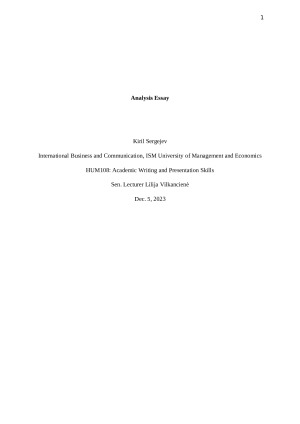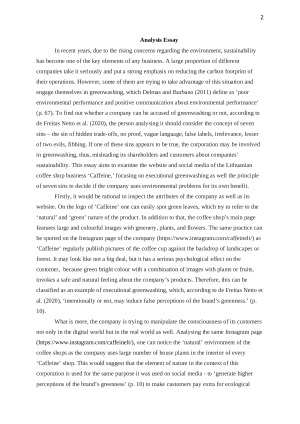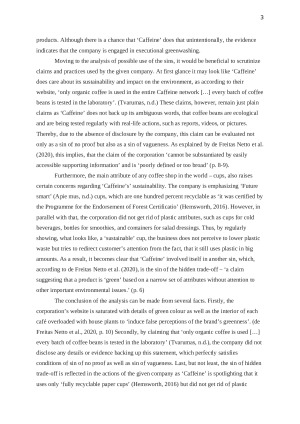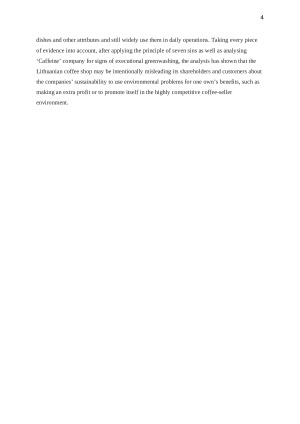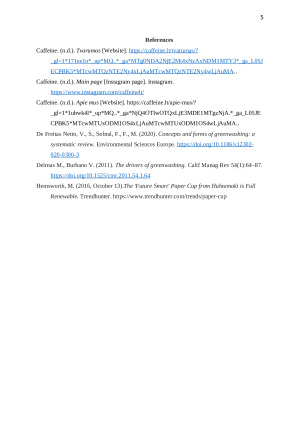Greenwashing analysis
Detali informacija
Ištrauka
Analysis Essay
International Business and Communication, ISM University of Management and Economics
HUM108: Academic Writing and Presentation Skills
Sen. Lecturer Lilija Vilkancienė
Dec. 5, 2023
2
Analysis Essay
In recent years, due to the rising concerns regarding the environment, sustainability
has become one of the key elements of any business. A large proportion of different
companies take it seriously and put a strong emphasis on reducing the carbon footprint of
their operations. However, some of them are trying to take advantage of this situation and
engage themselves in greenwashing, which Delmas and Burbano (2011) define as ‘poor
environmental performance and positive communication about environmental performance’
(p. 67). To find out whether a company can be accused of greenwashing or not, according to
de Freitas Netto et al. (2020), the person analysing it should consider the concept of seven
sins – the sin of hidden trade-offs, no proof, vague language, false labels, irrelevance, lesser
of two evils, fibbing. If one of these sins appears to be true, the corporation may be involved
in greenwashing, thus, misleading its shareholders and customers about companies’
sustainability. This essay aims to examine the website and social media of the Lithuanian
coffee shop business ‘Caffeine,’ focusing on executional greenwashing as well the principle
of seven sins to decide if the company uses environmental problems for its own benefit.
Firstly, it would be rational to inspect the attributes of the company as well as its
website. On the logo of ‘Caffeine’ one can easily spot green leaves, which try to refer to the
‘natural’ and ‘green’ nature of the product. In addition to that, the coffee shop’s main page
features large and colourful images with greenery, plants, and flowers. The same practice can
be spotted on the Instagram page of the company (https://www.instagram.com/caffeinelt/) as
‘Caffeine’ regularly publish pictures of the coffee cup against the backdrop of landscapes or
forest. It may look like not a big deal, but it has a serious psychological effect on the
customer, because green bright colour with a combination of images with plants or fruits,
invokes a safe and natural feeling about the company’s products. Therefore, this can be
classified as an example of executional greenwashing, which, according to de Freitas Netto et
al. (2020), ‘intentionally or not, may induce false perceptions of the brand’s greenness.’ (p.10).
Mūsų mokslo darbų bazėje yra daugybė įvairių mokslo darbų, todėl tikrai atrasi sau tinkamą!
